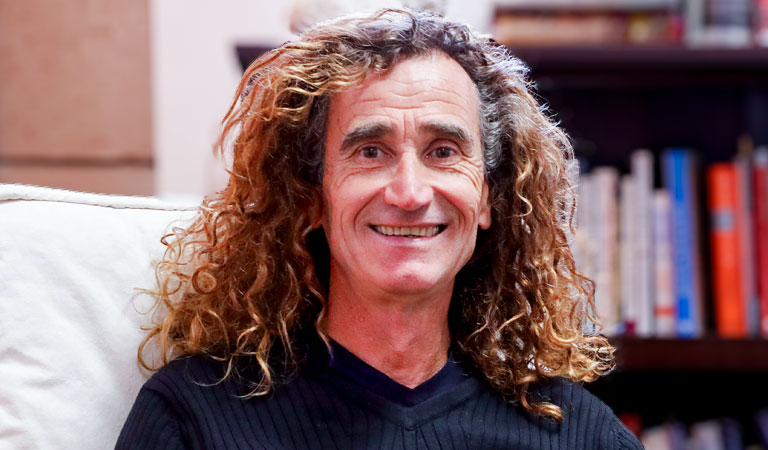Zorman’s Inside-Out Course Builds Bridges
February 20, 2025
In the 1990s, Temple University professor Lori Pompa prototyped a course that allowed traditional students to ditch their familiar university surroundings for a few hours each week to learn in a prison setting alongside incarcerated students. The resulting Inside-Out Prison Exchange Program spread globally, reaching The Claremont Colleges in 2018. This fall, Walter and Leonore Annenberg Leadership Professor Werner Zorman taught Interpersonal Dynamics for the first time at the California Rehabilitation Center (CRC) in Norco.
“This wasn’t just a course,” says Zorman. “It was an experience in fostering vulnerability, bridging differences and creating an inclusive space for growth among 15 individuals with radically different life experiences.” An expert in leadership development with a special interest in group dynamics, Zorman had a longstanding interest in the Inside-Out program. At an intensive training program in July 2024, he heard anecdotes from previous program graduates and instructors and set out adapting Interpersonal Dynamics—a course he’s taught numerous times at Mudd—for Inside-Out students.
The small class size of 15 students—eight inside students at CRC Norco completing an Organizational Studies degree at Pitzer College and seven outside students from the Claremont Colleges—made frequent interactions possible, but differences in student experiences made communication challenging, particularly when course topics included race and gender. “When microaggressions and systemic racism are so prevalent in society, it’s easy to imagine how they can arise in a group of students of which half or more are incarcerated,” says Zorman. “Students discussed their personal experiences often, occasionally creating conflict—and not always in the politest way.”
Zorman lets students work through conflict as part of the learning experience rather than intervening. “We worked through conflicts that weren’t resolved right away,” says Zorman. “As the semester progressed, I noticed the students starting to sort things out—to see each other’s perspectives, and those were significant milestones.”
The students journaled frequently and wrote long reflections, and Zorman says over the course of the semester, the group evolved from a collection of individuals into a supportive and inclusive community of learners. A significant outcome of the course was the development of leadership skills, not in the traditional sense of authority, but in the students’ ability to guide and influence with authenticity.
“Participants transformed in ways that are difficult to quantify but impossible to ignore,” he says. “They became more self-aware, deepened their connections with others, developed greater skill in navigating the complexities of human relationships and experienced the transformative magic of being part of an inclusive learning community.”
A Norco student described their experience in Zorman’s course: “I have literally walked through the shadows of death and turned it into a place of metamorphosis. I learned love in a place of barbed wires and chains.”
“This group has given me more than just knowledge,” says a 5C student. “I see the effects of our readings and discussions in my day-to-day. I give positive feedback in real time, lean into sharing my feelings more and am more self-assured.”
The Justice Education Center at the 5Cs, which launched as a prison and justice education collaborative, facilitates the Inside-Out courses at the Norco facility. During spring 2025, Zorman will co-teach Interpersonal Dynamics alongside Barbara Junisbai, associate professor of organizational studies at Pitzer College. Arthi Padmanabhan POM ’14, assistant professor of computer science at Harvey Mudd, is also teaching an Inside-Out course this spring. While the courses are currently only held at Norco, the Center hopes to expand instruction to other carceral facilities.
